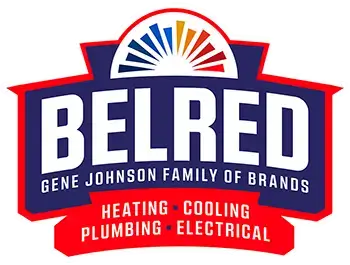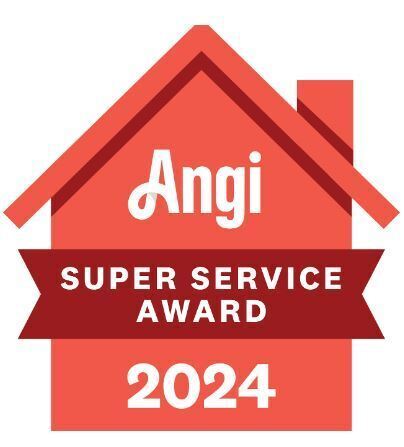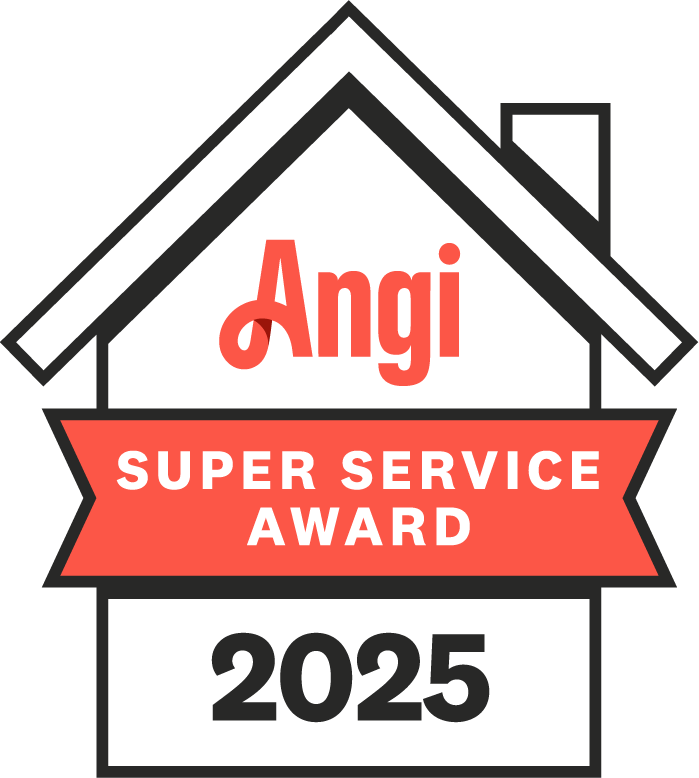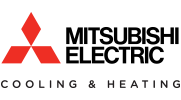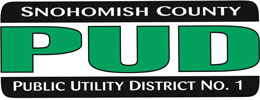Heat Pump Repair, Installation & Maintenance in Seattle, WA
Free Furnace
with qualifying heat pump or AC purchase.
At BelRed, we understand how important it is to have an efficient and reliable heating and cooling system in your home. That’s why we offer top-notch heat pump repair, installation, replacement, and maintenance services to help our customers stay comfortable and save on energy costs.
Whether you’re looking to upgrade your existing HVAC system, have a new heat pump installed, or fix your already installed heat pump, our team of experienced technicians is here to help. With 35+ years in business, putting the customer first and delivering the best products and service, we’re equipped to handle any heating or cooling service you may need.
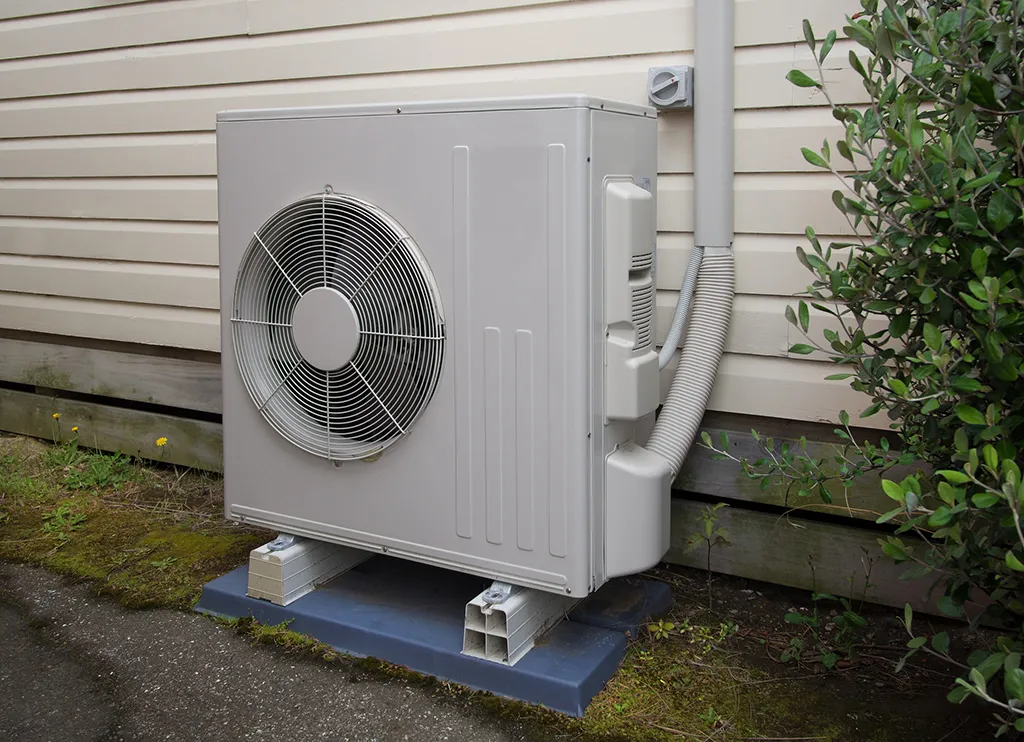
We believe that our customers deserve the very best in service and expertise, and we’re committed to delivering just that.
So, if you’re in need of top-tier heat pump services in the Seattle Metropolitan Area, don’t hesitate to reach out to us.
Call us today or contact us online.
Our Comprehensive Heat Pump Repair Services in Seattle
When your heat pump system isn’t working correctly, you need fast and reliable repair services. Our certified technicians at BelRed are equipped to handle any heat pump issues with precision and care. We diagnose problems quickly, including refrigerant leaks, strange noises, and reduced efficiency. Our transparent pricing and expert repairs ensure your system runs efficiently, providing consistent heating and cooling throughout your home. Trust our experienced team to restore your comfort with expert heat pump repair services.
What to Expect From Our Team During Your Heat Pump Repair Process
When your heat pump breaks down, you need fast, reliable heat pump repair services. Our skilled HVAC technicians follow a meticulous process to ensure your system is back up and running quickly:
- Comprehensive Diagnosis: We thoroughly inspect your heat pump system, identifying issues such as refrigerant leaks, strange noises, or reduced airflow. Our detailed diagnostics allow us to pinpoint the root cause of the problem.
- Transparent Cost Estimate: Before beginning any repair services, we provide a clear, upfront estimate detailing the costs involved. No hidden charges or unexpected fees.
- Expert Repairs: Our technicians have extensive training in heat pump repair and stay updated on the latest industry advancements. We repair all heat pump brands and models, regardless of where you purchased your system.
- Post-Repair Testing: After completing the repairs, we test your system to ensure it operates efficiently, providing heating and cooling as intended.
- Maintenance Recommendations: To prevent future issues, we offer customized maintenance plans based on your system’s specific needs.
Our Personalized Heat Pump Installation Services for Seattle Homeowners
At BelRed, we provide a seamless, start-to-finish heat pump installation experience designed around your comfort and peace of mind. Here’s what sets our service apart:
- Expert Installation by Certified Technicians: Our experienced team ensures safe, efficient installation with minimal disruption to your daily routine.
- Top-Quality Materials & Trusted Equipment: We install only high-performance, reliable components to ensure long-lasting comfort and energy savings.
- Full-Service Project Management: From site assessment to final walkthrough, we manage every aspect of your heat pump installation.
- Thorough System Testing: Before we leave, we perform a complete system check to ensure your heat pump is running at peak performance.
- Clear Homeowner Guidance: We walk you through how to use your new heat pump system, including thermostat controls and energy-saving tips.
- Maximized Long-Term Value: Our precision installation helps you get the most out of your investment with optimal performance and efficiency.
- Comprehensive Warranty Coverage: All installations are backed by robust warranties for added peace of mind.
Ready to make your home more efficient and comfortable?
Contact us today to learn more about our professional heat pump installation services and schedule your appointment.
Types of Heat Pumps We Often Install in the Seattle Area
BelRed offers a range of heat pump options to fit your specific needs. Here are a few of the types of heat pumps we install:
Air-Source Heat Pumps
Air-source heat pumps work by absorbing heat from the outside air and using it to warm your home in the winter—and vice versa in the summer. They’re a popular option for their energy efficiency and cost-effectiveness and can be a great fit for homes in moderate climates.
Ground-Source (geothermal) Heat Pumps
A geothermal heat pump uses the earth’s constant temperature to heat and cool your home. It does this by circulating a liquid through a series of underground loops, which absorb heat from the earth in winter and release it in summer. Geothermal heat pumps are highly efficient, eco-friendly, and can provide significant energy savings over time.
Ductless Mini-Split Heat Pumps
A mini-split heat pump provides targeted heating and cooling to specific areas of your home, without the need for ductwork. They’re ideal for homes that don’t have central heating and cooling systems. They’re also a great choice for homeowners who want more precise control over the temperature in different areas of their homes. Ductless heat pumps are also energy-efficient and can help you save money on your energy bills.
Which Heat Pump System Should You Choose?
We know that choosing the right heat pump system can be a daunting task. We offer expert guidance and personalized recommendations to help you find the right heat pump system for your home.
Our team will start by conducting a thorough assessment of your home, considering factors like your home’s:
- Size
- Age
- Insulation
- Existing heating and cooling systems
We’ll also look at your budget and energy goals, such as how much you want to save on your energy bills. Based on this evaluation, we’ll recommend the best heat pump for your needs.
Once you’ve selected a system, our team will handle every aspect of the installation process, ensuring that your new heat pump is installed safely, efficiently, and with minimal disruption to your daily routine.
Ready to upgrade to a new heat pump? Contact us today or book our services online, here.
Our Heat Pump Replacement Services
At BelRed, we provide expert heat pump replacement services to ensure that your home stays comfortable and efficient.
If your heat pump is showing signs of wear and tear, is over 10 years old, or is not functioning properly despite regular maintenance, it may be time for a replacement.
We offer a wide selection of high-quality heat pump systems from leading manufacturers, and we’ll work with you to find the right system for your home.
We’ll handle every aspect of the replacement process, from removing your old system to installing your new one, so you can enjoy reliable, efficient heating and cooling for years to come.
Reach out today or book our services online, here.
Signs Your Heat Pump Needs Replacement
If you’re experiencing any of the following issues with your heat pump, it may be time for a replacement:
- Increased energy bills
- Reduced heating or cooling output
- Frequent breakdowns or repairs
- Strange noises or odors
- Uneven temperatures throughout your home
Don’t let a malfunctioning heat pump get in the way of your comfort and peace. Call us today to book an appointment with our experts!
Expert Heat Pump Maintenance in Seattle, WA
Routine maintenance is essential for extending the lifespan of your heat pump system and reducing energy costs. At BelRed, our heat pump maintenance services focus on optimizing system performance while ensuring indoor air quality and year-round comfort.
Our Heat Pump Maintenance Checklist
During a maintenance visit, our technicians perform a comprehensive inspection, including:
- Cleaning and Replacing Filters: Clogged filters restrict airflow, forcing your system to work harder and use more energy.
- Inspecting Electrical Components: We check wiring, connections, and capacitors to prevent potential electrical failures.
- Checking Refrigerant Levels: Low refrigerant can reduce your system’s efficiency and cause increased energy bills.
- Calibrating Thermostats: We ensure accurate temperature control for consistent heating and cooling.
- Testing System Controls: Proper system cycling prevents overheating and reduces utility bills.
- Lubricating Moving Parts: This reduces friction and extends the life of key components.
- Inspecting Ductwork (if applicable): Leaky ducts can cause uneven temperatures and energy loss.
By following this checklist, we ensure your system runs efficiently and reliably, helping you save money and reduce environmental impact.
The Benefits of Heat Pumps
Heat pumps offer great comfort while saving you money. Unlike furnaces that burn fuel or use electric resistance to create heat, heat pumps move heat from one place to another using just a modest amount of electricity in the process.
With proper sizing, installation and air distribution, today’s modern heat pump systems can also provide:
- Increased comfort – Multi-stage or variable-speed compressors that adjust their output to match your home’s heating and cooling needs.
- Even temperatures – Variable-speed fans gently mix the air, maintaining consistent indoor temperatures, even when there’s no active heating or cooling cycle.
- Quiet operation – Advanced technology reduces compressor and fan noise for a peaceful indoor environment.
- Improved energy efficiency – Heat pumps use significantly less energy than traditional HVAC systems, reducing both your utility bills and your carbon footprint.
- Year-round functionality – Many heat pumps can provide both heating in winter and cooling in summer, eliminating the need for separate systems.
- Healthier indoor air – Heat pumps often come equipped with advanced filtration systems that improve indoor air quality by removing dust, allergens, and other pollutants.
- Zoned comfort – Ductless or multi-zone systems allow you to customize temperatures in different areas of your home for personalized comfort and greater energy savings.
- Enhanced dehumidification – During cooling cycles, heat pumps help remove excess moisture from the air, creating a more comfortable living environment.
- Environmentally friendly performance – By leveraging renewable energy sources and avoiding combustion, heat pumps reduce greenhouse gas emissions compared to traditional systems.
- Federal tax credits (geothermal systems)
- Utility rebate programs (855) 345-6161
Why Choose BelRed?
Choosing BelRed means selecting a team dedicated to exceptional customer service and expert heat pump services. Here’s why homeowners trust us:
- Highly Trained Technicians: Our HVAC specialists receive hundreds of hours of classroom and field training annually.
- Cutting-Edge Expertise: We stay updated on the latest HVAC technologies to provide the best solutions.
- Comprehensive Services: From heat pump installation and maintenance to repairs and replacements, we cover it all.
- Commitment to Energy Efficiency: We prioritize environmentally friendly practices, helping you save energy and reduce your carbon footprint.
- Transparent Pricing: No surprises—just honest, upfront pricing on all services.
Heat Pump FAQ
- Can Heat Pumps Provide Both Heating and Cooling?
- How Does a Heat Pump Differ from a Traditional Air Conditioner?
- How Often Should I Have My Heat Pump Serviced?
- Can a Heat Pump Function Efficiently in Colder Climates?
- How Long Does a Heat Pump Typically Last?
- What Are the Signs That My Heat Pump Needs Repair?
- How Can I Maintain My Heat Pump Between Professional Services?
- Why Is My Heat Pump Freezing Up, and What Should I Do About It?
- Is Heat Pump Repair Covered Under Warranty?
- What Components Are Involved in a Heat Pump Installation?
- How Does the Installation of a Heat Pump Differ from a Furnace Installation?
- What Efficiency Ratings Should I Consider When Choosing My Heat Pump?
Can Heat Pumps Provide Both Heating and Cooling?
Yes, heat pumps are designed to provide both heating and cooling, making them a highly versatile and energy-efficient solution for year-round comfort. In cooling mode, a heat pump functions much like a traditional air conditioner by removing heat from inside your home and transferring it outdoors. When heating is needed, the system reverses the flow of refrigerant to extract heat from the outside air, even in colder temperatures, and bring it indoors.
This dual functionality eliminates the need for separate heating and cooling systems, helping to reduce equipment costs and simplify maintenance. With advanced inverter technology and high efficiency ratings, modern heat pumps offer consistent indoor temperatures and lower energy bills. They’re especially ideal for homeowners looking to reduce their environmental impact while maintaining comfort in every season.
How Does a Heat Pump Differ from a Traditional Air Conditioner?
Unlike a traditional air conditioner, a heat pump can both heat and cool your home. It uses a reversing valve to change the direction of refrigerant flow, allowing it to transfer heat from the outside air into your home during winter and expel heat outside during summer.
Do heat pump installations require air duct alterations?
In some cases, air duct alterations may be necessary if your existing ducts are not compatible with the new system. An HVAC contractor will assess your current setup and recommend modifications if needed to ensure efficient airflow.
How Often Should I Have My Heat Pump Serviced?
It’s recommended to have your heat pump professionally serviced at least once a year. Ideally, schedule maintenance before the heating or cooling season to ensure peak performance. Regular servicing helps identify potential issues early and keeps your system running efficiently.
Can a Heat Pump Function Efficiently in Colder Climates?
Yes, modern heat pumps are designed to function efficiently even in colder climates. Some models include heat strips as a backup heating source when temperatures drop significantly, ensuring consistent warmth throughout your home.
How Long Does a Heat Pump Typically Last?
With proper maintenance, a heat pump can last 10-15 years or longer. Regular servicing and timely repairs play a crucial role in extending its lifespan. If your system is approaching the end of its life and requiring frequent repairs, it may be more cost-effective to consider a replacement.
What Are the Signs That My Heat Pump Needs Repair?
Look out for these common signs that your heat pump may need repair:
- Unusual noises like grinding, banging, or hissing
- Reduced heating or cooling efficiency
- Short cycling (frequent on-and-off cycles)
- Uneven temperatures throughout your home
- A sudden increase in energy bills
If you notice any of these issues, contact a professional technician to assess the problem.
How Can I Maintain My Heat Pump Between Professional Services?
To maintain your heat pump and prolong its lifespan, you can:
- Regularly clean or replace air filters (every 1-3 months, depending on use).
- Keep the outdoor unit clear of debris, such as leaves and dirt.
- Ensure the area around the outdoor unit has sufficient airflow.
- Check heat pump settings, thermostat settings, and thermostat batteries periodically.
- Monitor for unusual noises or reduced performance.
Why Is My Heat Pump Freezing Up, and What Should I Do About It?
A freezing heat pump could be caused by restricted airflow, dirty coils, or low refrigerant levels. To address the issue:
- Check and replace air filters if dirty.
- Ensure no debris is blocking the outdoor unit.
- Verify that vents inside your home are open and unobstructed.
If the freezing persists, turn off the system and contact a technician to inspect for refrigerant leaks or other underlying issues.
Is Heat Pump Repair Covered Under Warranty?
Warranty coverage varies depending on the manufacturer and installer. Most heat pumps come with a manufacturer’s warranty for parts (typically 5-10 years) and may include a separate labor warranty from the installer. Always check your warranty documentation to understand what is covered and ensure you keep up with required maintenance to avoid voiding the warranty.
What Components Are Involved in a Heat Pump Installation?
Heat pump installation involves several key components, including the indoor air handler, outdoor heat pump condenser, refrigerant lines, and a thermostat. The indoor air handler distributes warm or cool air throughout your home, while the heat pump condenser transfers heat between the indoor and outdoor units.
How Does the Installation of a Heat Pump Differ from a Furnace Installation?
The installation of a heat pump differs from a furnace installation in several key ways:
- System type: A heat pump is designed to provide both heating and cooling, while a furnace only provides heating. This means a heat pump may replace both a furnace and an air conditioner, simplifying your HVAC setup.
- Outdoor unit: Heat pumps include an outdoor condenser unit, which is not required for furnaces. This outdoor component must be installed in a location with adequate airflow and minimal obstruction.
- Ductwork modifications: While both systems may use ductwork, heat pumps often require adjustments to ensure proper airflow and compatibility with their variable-speed capabilities.
- Energy source: Furnaces rely on fuel sources like natural gas, oil, or electricity, while heat pumps use electricity to transfer heat. If switching to a heat pump from a gas or oil furnace, additional electrical work may be necessary.
- Installation time: Heat pump installations may take longer than furnace installations due to the need for both indoor and outdoor components to be properly set up and connected.
Always hire a qualified HVAC professional to ensure proper installation and maximize the efficiency and lifespan of your system.
What Efficiency Ratings Should I Consider When Choosing My Heat Pump?
Look for the Seasonal Energy Efficiency Ratio (SEER) for cooling efficiency and the Heating Seasonal Performance Factor (HSPF) for heating efficiency. Higher ratings indicate better performance and energy savings. Choosing an efficient system can reduce your carbon footprint and lower energy costs.
What Is the Role of Refrigerant Lines in a Heat Pump System?
Refrigerant lines are crucial for transporting refrigerant between the indoor and outdoor units. They enable the transfer of heat by allowing the refrigerant to absorb and release heat as it changes states between liquid and gas.
Contact Our Seattle Heat Pump Experts Today for Personalized HVAC Solutions
At BelRed, our Seattle-based technicians specialize in complete heat pump services—including installation, repair, maintenance, and replacement—to help keep your home or business comfortable and energy efficient year-round. Whether you’re upgrading your system, troubleshooting an issue, or scheduling preventive maintenance, our experienced team is here to deliver expert care tailored to your needs.
In addition to our top-tier heat pump solutions, we provide a full range of residential HVAC services, covering both heating and cooling systems across all home types and commercial spaces. Our technicians are highly trained in the latest technologies, ensuring you receive reliable service and long-term comfort.
Contact BelRed online today or call us to schedule your heat pump or HVAC service in the Seattle Metropolitan Area. We’re committed to helping you maintain a comfortable, efficient environment—no matter the season.
YEARS
Since 1986
The Gold Standard in Heating, Cooling, Plumbing, and Electrical
At BelRed, we bring you greater comfort and efficiency to your home. We offer a Lifetime Limited Warranty on all heating, cooling, plumbing & electrical jobs – backed by our expert HVAC technicians. Whether you are in the market for a heat pump, mini-split, furnace, or air conditioner, we have an extensive list of high-end products.
BelRed Heating, Cooling, Plumbing & Electrical is licensed, bonded and insured. From a wide offering of services to an extensive product line, BelRed brings innovative solutions to every job. Call us today and always have a friend in the home services industry.
What Our Clients Say
Dustin H. Nick E., and Cody M. installed our new heat pump in a professional manner: All work was done as promised and onschedule. All three technicians deserve a 5 star rating.
Russ H was here today and fixed a problem that I had with my A/C. I've had several people coming before and never had success but he took the time and his great knowledge and fixed my problem. I would love to thank him for that a million times!
Ray B and Nick E did an excellent job installing our new furnace. I was also pleased with the service that I received from Jake the day before regarding the inspection of the heating system and recommendations for correcting the problems we were having.
Great experience from start to finish. Richard was able to provide several options for water heater replacement that included replacement, upgrade and enhancement options. Installation was quick and neatly done. You'd never have known someone just did a replacement and installation. I think the area was cleaner after he left than before he got there.
